Team

Will Ratliff, MBA
Innovation Program Manager
Will is an Innovation Program Manager at DIHI. He leads the sourcing and execution of DIHI’s portfolio of innovation pilot projects via the DIHI annual request for applications (DIHI RFA). He has led 25 RFA projects since joining DIHI in summer 2018, including Duke Health's Sepsis Watch™ solution. He designs, implements, and measures impact for innovation projects across all healthcare settings at Duke. Additionally, he utilizes machine learning and other data science techniques along with real-time patient data to support clinical decision-making and interventions for projects like Cardiac Decompensation.
Prior to joining DIHI, Will led various clinical strategy, cost reduction, and electronic health record implementation projects for multi-hospital health systems, as part of his experience working in healthcare consulting. Will earned his undergraduate degrees in Economics and French at Vanderbilt University, and his master’s in business administration from Duke University’s Fuqua School of Business.
Will is inspired by solutions with measurable impact on clinical outcomes or healthcare cost-savings, especially with a cup of Counter Culture's Hologram Blend in hand.

Will Knechtle, MBA, MPH
Innovation Program Manager
Will is an Innovation Program Manager at DIHI who leads the execution and impact reporting for our innovation projects. He enjoys innovations providing value at lower costs and building toward community impact. For example, he pioneered Duke's first Hospital at Home program. Will has loved learning about user-experience design from DIHI solutions architects. He has developed several user interfaces with DIHI. Before joining DIHI, Will led Duke Health and Emory Healthcare teams in operational performance improvements. He earned his undergraduate and MBA degrees from Duke University and his MPH from Emory University. Before graduate school, Will catalyzed Niger community agribusiness and healthcare drives. During graduate school, he interned with HealthStream Living Labs, the Duke Chancellor for Health Affairs, a CDC-Emory Global Health Institute Partnership, and the Denver Department of Public Health.
Outside DIHI, you can find Will playing tennis, running with his dog, with friends at Monuts, or with his wife and 2-year-old son at the Durham Museum of Life and Science, Duke Gardens, or a local park.

Mike Revoir, BS
Solutions Architect
Mike is a Solutions Architect specializing in mobile application and full stack development. Since joining DIHI in 2015, Mike has played a pivotal role in enhancing Duke Health's mobile app development through efforts like Autism & Beyond, Duke Symptom Monitoring, and the DIHI Rapid App Prototyping Center, and expanding DIHI's data pipeline capabilities on solutions like Sepsis Watch™, the Duke Health Data Pipeline and through FHIR integration with the EMR.
Prior to joining DIHI, Mike worked at the Duke Clinical Research Institute where he led and implemented numerous solutions to support clinical trials and registries, championed efforts such as taking a risk-based approach to the software development lifecycle, and helped establish the mobile application development group.
Mike is passionate about developing and mentoring the next generation and appreciates the therapeutic aspect of making a pour over coffee using the Charleston Holy City Blend from Big Kick Coffee.

Michael Gao, MS
Data Scientist
I'm a Data Enthusiast who is interested in leveraging modern computing tools and statistical/machine learning approaches to solve problems in health care, technology, and beyond. My areas of focus include statistical software, bayesian inference, machine learning, and implementation of such methods into real-world operational settings.

Matt Gardner, BS
Solutions Architect

Marshall Nichols, MS
Data Engineer
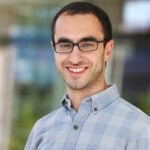
Mark Sendak, MD, MPP
Clinical Data Scientist
Mark is the Population Health & Data Science Lead at the Duke Institute for Health Innovation (DIHI), where he leads interdisciplinary teams of data scientists, clinicians, and machine learning experts to build technologies that solve real clinical problems. Together with his team, he has built tools to transform chronic disease management within an Accountable Care Organization and detection and management of inpatient deterioration within hospitals. He has integrated dozens of data-driven technologies into clinical operations and is a co-inventor of software to scale machine learning applications and real-world evidence generation across health systems. He leads the DIHI Clinical Research & Innovation scholarship, which equips medical students with the business and data science skills required to lead health care innovations. He co-leads Health AI Partnership, a learning collaborative to advance the safe, effective, and equitable use of AI software within healthcare delivery organizations.
Him and his team have published in top technical, clinical, and management venues. Their work has been featured in The Wall Street Journal, MIT Technology Review, Wired, and STAT News. He has served as an expert advisor to national organizations, including the American Medical Association, AARP, American Board of Family Medicine, White House Office of Science, Technology, and Policy, and the National Academies of Medicine. In 2024, he was nominated by the Government Accountability Office to serve as a member of the Health Information Technology Advisory Committee (HITAC). Also in 2024, he testified before the US Senate Finance Committee during a hearing titled ‘Artificial Intelligence in Health Care: Promise and Pitfalls.” He serves on the board of Machine Learning in Healthcare (MLHC), the premier computer science conference exclusively dedicated to healthcare. He was named a STAT Wunderkind in 2020 for his efforts to responsibly build and integrate AI into clinical practice. He obtained his MD and Masters of Public Policy at Duke University as a Dean’s Tuition Scholar and his Bachelor’s of Science in Mathematics from UCLA, where he was awarded the Charles E. Young Humanitarian Award, the top honor for community service.
Mark is passionate about making an impact on healthcare delivery. You can find him listening to electronic music and sipping a mocha at Joe Van Gogh.

Jamie Daniel, BS
Solutions Architect

Ebony Nash, CEAP
Program Coordinator
Ebony is the Program Coordinator for DIHI. She recently joined the team in February 2020, and looks forward to being an asset in assisting with various administrative and project related duties.
Prior to joining DIHI, Ebony worked at Duke Population Health Sciences where she helped with the development of the first year Master’s program, led the Summer Institute program, and worked closely with faculty and students.
Ebony is passionate about helping others, whether it be assisting her team during work hours or volunteering on the weekends with grocery shopping for senior citizens. She can count on her cup of Stormio Nespresso to help kick start each day.

Bradley Hintze, PhD
Data Engineer
Bradley is a data scientist at DIHI where he assists in data engineering of DIHI’s Pipeline databases. In this role, he curates messy EMR data into a consumable form for all of Duke Health. He plays a critical role in assembling data for various important projects commissioned by leaders at Duke Health.
Before joining DIHI, Bradley led data science efforts at the VA’s National Oncology Program. He helped pioneer the National Precision Oncology Program which brought genetically-based personal treatments to veterans with advanced-stage cancer. He developed his programing skills while pursuing a PhD in structural biology, for which he remains passionate for. His dissertation focused on protein sidechain conformations and extremely rare base-pair conformations in DNA.
Bradley fancies himself a data pedant, caring deeply about perceptions of what data says and what it does not say. Other passions, in no particular order, include scotch, writing, running, swimming, and nuanced thinking. Bradley is the weirdo in the office who doesn't like beer or any hot drinks, no matter the flavor. ????

Suresh Balu, MS, MBA
Director for DIHI, and Associate Dean, Innovation and Partnership for School of Medicine
Suresh Balu serves as Associate Dean for Innovation and Partnership for the School of Medicine and as Program Director for the Duke Institute for Health Innovation (DIHI).
In his role as Associate Dean, Suresh is responsible for creating, implementing, and sustaining innovation and partnership initiatives for the School of Medicine, specifically, to support the strategic priorities for clinical and translational research. As Program Director for DIHI, Suresh works closely with Duke Health leadership to develop innovation frameworks and approaches across healthcare delivery, education and research. His responsibilities include, strategic evaluation of opportunities, developing competitive landscape for healthcare and research initiatives, complex strategic, operational and financial analyses and recommendations for Duke Health leadership and corporate development for global and US-based collaborations as they relate to an innovation platform.
Suresh’s experience prior to Duke spans academia, management consulting, venture capital and private equity. As a corporate and competitive strategy consultant, Suresh worked with leading life sciences and technology firms to develop strategies for innovation, revenue generation, organizational restructuring and product portfolio planning. His PE/VC experiences include product and technology due diligence, deal structuring and portfolio company management. As an entrepreneur, Suresh was responsible for program management, market and product strategy at a venture-funded firm that focused on visualization and diagnostic products. Suresh has operational and business development experience in Asia and Europe, where he helped to establish sales channels serving government and academic clients. He is an inventor named on more than 20 US and international patents.
Suresh holds MS (Computer Science) and MBA (Corporate Finance) degrees as well as a Master’s degree in Informatics and Bachelor’s degree in Engineering.

Thomas A. Owens, MD
Chief Operating Officer and Executive Vice President, Duke University Health System and Executive Director, Duke Institute for Health Innovation
Thomas Owens, MD, is Executive Vice President and Chief Operating Officer of Duke University Health System and Executive Director for DIHI. With more than two decades of experience at Duke Health, Dr. Owens serves as the principal senior leader overseeing health system operations, working with enterprise leaders across Duke Health to deliver outstanding clinical outcomes and remarkable patient experience across Duke’s network and the full continuum of care, from the hospital to ambulatory settings to care in homes and the community.
In his previous role as Senior Vice President, Dr. Owens managed DUHS-employed physicians, Duke Primary Care, Duke HomeCare and Hospice, Graduate Medical Education, population health management programs, and payer value-based contracts through Duke Connected Care. As President of Duke University Hospital, our academic medical center was consistently ranked as North Carolina’s No. 1 hospital for quality. In 2021, he and his DUH team opened the 350-bed, Duke Central Tower.
In 2020, Dr. Owens played a critical role in leading DUHS’s COVID response, collaborating with state government officials, operational leaders and frontline team members to care for our community, patients, and team during the pandemic. In partnership with colleagues in the Private Diagnostic Clinic, community practices and the Duke University School of Medicine, Dr. Owens served as DUHS’s lead executive in planning the Duke Health Integrated Practice, projected to open July 1, 2023.
Previous roles at DUHS and DUH include Chief Clinical Officer and Senior Vice President, Chief Medical Officer and Vice President, Chief of Duke Hospital Medicine Programs, Co-Director of Internal Medicine and Pediatrics Residency programs, and more.
Dr. Owens received his M.D. with honors from the University at Buffalo School of Medicine & Biomedical Sciences. He completed his Internal Medicine and Pediatrics training at Duke University Medical Center.
Leadership Board
Internal Advisory Board
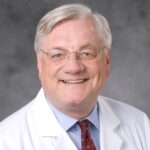
Bill Fulkerson, MD
Professor of Medicine and Former Executive Vice President of DUHS
William J. Fulkerson, Jr., MD, is a professor of medicine at Duke University School of Medicine and Former Executive Vice President for Duke University Health System (DUHS).
Fulkerson is a North Carolina native and received his undergraduate and medical degrees from the University of North Carolina School of Medicine. He completed his internship and residency at Vanderbilt University in Nashville, Tennessee, where he also completed a fellowship in pulmonary and critical care medicine. Fulkerson earned his MBA from Duke University Fuqua School of Business in 2002.
Fulkerson has served previously as Executive Vice President for Duke University Health System, Senior Vice President of Clinical Affairs for DUHS, CEO of Duke University Hospital, and Vice President of the Duke University Health System. He is a nationally recognized specialist in pulmonary and critical care medicine, and has authored/co-authored numerous books, chapters and peer reviewed publications. Dr. Fulkerson has twice received the Eugene A. Stead Jr. Award for Excellence in Teaching from the Duke Department of Medicine. He is past Chairman of the Board of Trustees, North Carolina Hospital Association.

Robert Calderbank, PhD
Arts & Sciences
Robert Calderbank is Director of the Information Initiative at Duke University, where he is Professor of Electrical Engineering, Computer Science and Mathematics. He joined Duke in 2010, completed a 3 year term as Dean of Natural Sciences in August 2013, and also served as Interim Director of the Duke Initiative in Innovation and Entrepreneurship in 2012. Before joining Duke he was Professor of Electrical Engineering and Mathematics at Princeton University where he also directed the Program in Applied and Computational Mathematics.
Before joining Princeton University Dr. Calderbank was Vice President for Research at AT&T. As Vice President for Research he managed AT&T intellectual property, and he was responsible for licensing revenue. AT&T Labs was the first of a new type of research lab where masses of data generated by network services became a giant sandbox in which fundamental discoveries in information science became a source of commercial advantage
At Duke, Dr. Calderbank works with researchers from the Duke Center for Autism and Brain Development, developing information technology that is able to capture a full spectrum of behavior in very young children. By supporting more consistent and cost-effective early diagnosis, the team is increasing the opportunity for early interventions that have proven very effective.
At the start of his career at Bell Labs, Dr. Calderbank developed voiceband modem technology that was widely licensed and incorporated in over a billion devices. Voiceband means the signals are audible so these modems burped and squeaked as they connected to the internet. One of these products was the AT&T COMSPHERE® modem which was the fastest modem in the world in 1994 – at 33.6kb/s!
Together with Peter Shor and colleagues at AT&T Labs Dr. Calderbank developed the group theoretic framework for quantum error correction. This framework changed the way physicists view quantum entanglement, and provided the foundation for fault tolerant quantum computation.
Dr. Calderbank has also developed technology that improves the speed and reliability of wireless communication by correlating signals across several transmit antennas. Invented in 1996, this space-time coding technology has been incorporated in a broad range of 3G, 4G and 5G wireless standards. He served on the Technical Advisory Board of Flarion Technologies a wireless infrastructure company founded by Rajiv Laroia and acquired by Qualcomm for $1B in 2008.
Dr. Calderbank is an IEEE Fellow and an AT&T Fellow, and he was elected to the National Academy of Engineering in 2005. He received the 2013 IEEE Hamming Medal for contributions to coding theory and communications and the 2015 Shannon Award.

Barry Myers, MD, PhD
Engineering
Dr. Myers has been a member of the Duke faculty since 1991 and has just completed a three-year role as Managing Director of Licensing and Ventures. His research examines the biomechanics of head and neck injury with the goal of injury prevention. Dr. Myers founded and directs the Coulter Foundation Translational Partnership Program at Duke that provides $1 MM in early stage funding and management to faculty health care innovations annually with a goal of licensing and creating new life science start-up companies. He is also Director of Innovation in the newly formed Duke CTSI where he is responsible for the consult service that provides funding and project management support to faculty translational research projects in the Duke Medical Center. Dr. Myers created and leads a national translational research fund intended to reduce injuries in professional football (https://www.playsmartplaysafe.com/headhealthtech/). Taken together he oversees over $3,000,000/year in funding for life science projects. He also maintains an active consulting practice including the NFL-PA and NASCAR while serving as an Executive-in-Residence at Pappas Ventures advising several start-up companies.
Dr. Myers is considered by many as the preeminent researcher in his field worldwide, having over 100 manuscripts and publications on the subject. Among Dr. Myers many honors are the Stapp Award of Recognition, and the Isbrandt Award for automotive safety from the Society of Automotive Engineers. He is the six-time winner of the Stapp Award for research in impact biomechanics, more than any other individual, and also the Bertil Aldman award for impact biomechanics research. Dr. Myers has worked with all major organizations concerned with safety in the United States including the National Highway Traffic Safety Administration, the Consumer Product Safety Commission and the National Operating Committee on Standards for Athletic Equipment. Because of his breadth of experience in injury prevention, Dr. Myers was appointed to the position of Senior Scientific Advisor to the National Center for Injury Prevention and Control for two years. He has also consulted with most major automobile manufactures and automotive racing organizations worldwide.
Dr. Myers is a Distinguished Professor at Duke University, having received the Bass Chair in recognition of his accomplishments in research and teaching. He is the faculty advisor to four student best graduate student paper competition winners at national meetings. He was responsible for the 2004 revision of the Pratt School of Engineering undergraduate curriculum. He has served as Director of Undergraduate Studies and Director of Graduate Studies for the Department of Biomedical Engineering. He has also served as Senior Associate Dean for Industrial Partnerships and the Director of the Center for Entrepreneurship and Research Commercialization in the Pratt School of Engineering.

Eugene Oddone, MD
General Internal Medicine
Eugene Oddone, MD, is a Professor of Medicine, the Director of the Center for Health Services Research in Primary Care, VAMC and the Director of the Clinical Research Training Program.
Dr Oddone is a health services researcher whose primary research interests are: 1) evaluating the effectiveness of primary care with an emphasis on chronic disease, 2) assessing the reasons and testing interventions to reduce racial variation in access the health care and utilization of health services, 3) determining appropriate interventions to improve blood pressure control for hypertensive patients treated in primary care. He aso research expertise in racial variation, blood pressure control, disease management, and tele-medicine and has methodologic expertise in designing and testing health services interventions in multi-site clinical trials.

Barak Richman, PhD
Law
Barak Richman’s primary research interests include the economics of contracting, new institutional economics, antitrust, and healthcare policy. His work has been published in the Columbia Law Review, the University of Pennsylvania Law Review, Law and Social Inquiry, the New England Journal of Medicine, the Journal of the American Medical Association, and Health Affairs. In 2006, he co-edited with Clark Havighurst a symposium volume of Law and Contemporary Problems entitled "Who Pays? Who Benefits? Distributional Issues in Health Care,” and his book Stateless Commerce was published by Harvard University Press in 2017.
Richman represented the NFL Coaches Association in an amicus curiae brief in American Needle v. The Nat’l Football League, which was argued before the U.S. Supreme Court in January 2010 and again in Brady v. The Nat’l Football League in 2011. His recent work challenging illegal practices by Rabbinical Associations was featured in the New York Times. His work is available at http://ssrn.com/author=334149.
Richman also is on the Health Sector Management faculty at Duke’s Fuqua School of Business and is a Senior Fellow at the Kenan Institute for Ethics. He won Duke Law School's Blueprint Award in 2005 and was named Teacher of the Year in 2010.
Richman has an A.B., magna cum laude, from Brown University, a J.D., magna cum laude, from Harvard Law School, and a PhD from the University of California, Berkeley, where he studied under Nobel Laureate in Economics Oliver Williamson. He served as a law clerk to Judge Bruce M. Selya of the United States Court of Appeals for the First Circuit, and from 1994-1996 he handled international trade legislation as a staff member of the United States Senate Committee on Finance, then chaired by Senator Daniel Patrick Moynihan.

Peter Ubel, MD
Fuqua/Stanford
Peter Ubel M.D. is a physician and behavioral scientist whose research and writing explores the mixture of rational and irrational forces that affect our health, our happiness and the way our society functions. (What fun would it be to tackle just the easy problems?)
Ubel is the Madge and Dennis T. McLawhorn University Professor of Business, Public Policy and Medicine at Duke University. His research explores controversial issues about the role of values and preferences in health care decision making, from decisions at the bedside to policy decisions. He uses the tools of decision psychology and behavioral economics to explore topics like informed consent, shared decision making and health care cost containment. His books include Pricing Life: Why it’s time for healthcare rationing (MIT Press 2000) and Free Market Madness: How economics is at odds with human nature—and why it matters (Harvard Business Press, 2009). His newest book, Critical Decisions (HarperCollins, 2012) explores the challenges of shared decision making between doctors and patients. You can find his blogs and other information at http://www.peterubel.com/.
I am a physician and behavioral scientist at Duke University. My research and writing explores the quirks in human nature that influence our lives — the mixture of rational and irrational forces that affect our health, our happiness and the way our society functions. (What fun would it be to tackle just the easy problems?)
I am currently exploring controversial issues about the role of values and preferences in health care decision making, from decisions at the bedside to policy decisions. I use the tools of decision psychology and behavioral economics to explore topics like informed consent, shared decision making and health care spending. My books include Pricing Life (MIT Press 2000) and Free Market Madness (Harvard Business Press, 2009). My newest book, Critical Decisions (HarperCollins), is coming out in September of 2012, and explores the challenges of shared decision making between doctors and patients.
Global Advisory Board

Raymond Baxter, PhD
Senior Vice President, Community Benefit, Research and Health Policy, Kaiser Permanente
Raymond J. Baxter, PhD, is Kaiser Permanente’s senior vice president for Community Benefit, Research and Health Policy. As a member of Kaiser’s National Leadership Team, Dr. Baxter leads the organization’s activities to fulfill its social mission, including care and coverage for low income people, community health initiatives, health equity, environmental stewardship and support for community-based organizations. He also leads Kaiser Permanente’s work in research, health policy and diversity, and serves as President of KP International.
Dr. Baxter has more than 35 years of experience managing public health, hospital, longterm care and mental health programs, including heading the San Francisco Department of Public Health and the New York City Health and Hospitals Corporation.
Dr. Baxter also led The Lewin Group, a noted health policy firm. Dr. Baxter holds a doctorate from the Woodrow Wilson School of Public and International Affairs, Princeton University. He serves on the Advisory Boards of the UC Berkeley School of Public Health and the Duke University Institute for Health Innovation, the Board of the CDC Foundation, the Global Agenda Council on Health of the World Economic Forum, the Board of Archimedes, Inc. and is a member of the Institute of Medicine’s Roundtable on Population Health Improvement.
In 2001 the University of California, Berkeley, School of Public Health honored him as a Public Health Hero for his service in the AIDS epidemic in San Francisco. In September 2006 he received the CDC Foundation Hero Award for addressing the health consequences of Hurricane Katrina in the Gulf Coast, and for his longstanding commitment to improving the health of communities.
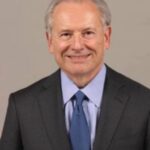
Jack Bovender
Vice Chair, Duke Board of Trustees
Jack O. Bovender, Jr. is retired Chairman and Chief Executive Officer of Nashville, Tenn.-based Hospital Corporation of America, the nation’s leading provider of healthcare services. HCA has 163 hospitals and 105 Ambulatory Surgery Centers in the United States and England.
Bovender is a 40-year veteran of the healthcare industry and has worked at HCA for 32 years. He began his hospital administrative career in 1969 as a lieutenant in the United States Navy stationed at the Naval Regional Medical Center in Portsmouth, Va. He later served as Chief Executive Officer of Medical Center Hospital in Largo, Fla., and West Florida Regional Medical Center in Pensacola, both owned by HCA.
From 1985 to 1992, Bovender held several senior-level positions with HCA, including Division Vice President in HCA’s Atlanta Division and President of HCA’s Eastern Group Operations. In 1992, he was named Executive Vice President and Chief Operating Officer for HCA.
Following HCA’s merger with Columbia in 1994, Bovender retired and served on the boards of several public and private companies, including Quorum Health Group, Inc., American Retirement Corp. and Nashville Electric Service. He returned to HCA in 1997 as HCA’s President and Chief Operating Officer. He was appointed to HCA’s Board of Directors in 1999 and was named President and CEO in 2001. He became Chairman and CEO of HCA in January 2002 and Chairman in January 2009. He retired as Chairman and CEO in December 2009.
Bovender is a vice chair of the Duke University Board of Trustees and a member of the Executive Committee, the Duke University Health System Board, and the Board of Visitors at the Fuqua School of Business at Duke. Bovender received Duke University’s Distinguished Alumni Award in 2012. In addition, Bovender is a former member of Duke University Divinity School’s Board of Visitors and former chairman of the Duke University Divinity School Capital Campaign Committee. He is a founding member of the Nashville Health Care Council. He has served on the boards of several Nashville human services and art organizations. In 2012, he was elected to the Board of Directors of Bank of America.
He served on the Board of Governors of the American College of Healthcare Executives (ACHE), an international professional society of nearly 30,000 healthcare executives. In 2007, he was awarded ACHE’s Gold Medal Award, recognizing his significant career-long contributions to the healthcare profession. Bovender was lauded by Institutional Investor magazine as “Best CEO in America” for healthcare facilities in 2003, 2004 and 2005.
He received his bachelor’s degree in psychology from Duke University in 1967 and his master’s degree in hospital administration from Duke University in 1969. Bovender and his wife, Barbara, live in Nashville. They have a son, Richard, who received his MBA from the Fuqua School of Business at Duke University in May 2008. Richard and his wife, Sara, live in Nashville. Bovender was born on August 16, 1945.

Tan Chorh Chuan, MBBS, PhD
President, National University of Singapore
Professor Tan Chorh Chuan was appointed President of the National University of Singapore in December 2008. He concurrently serves as the Chairman of the Board of the National University Health System. Prof Tan’s additional appointments include Deputy Chairman of Singapore’s Agency for Science, Technology and Research (A*STAR); Senior Advisor to the Governing Board of Duke-NUS Graduate Medical School; and Member, Board of Directors of the Monetary Authority of Singapore.
A renal physician, he obtained his medical training at NUS, and research training at the Institute of Molecular Medicine, Oxford. He was Dean of the NUS Faculty of Medicine from 1997 to 2000. He served as the Director of Medical Services, Ministry of Health, from 2000 to 2004, in which capacity he was responsible for leading the public health response to the 2003 SARS epidemic. He held the positions of NUS Provost, then Senior Deputy President from 2004 to 2008. He also played a key role in setting up the Duke-NUS Graduate Medical School, in his capacity as Deputy Chairman of the Governing Board from 2004 to 2007. As the inaugural Chief Executive of the National University Health System in 2008, he brought the NUS Medical and Dental Schools and the National University Hospital under single governance.
Prof Tan is a key leader in Singapore’s Biomedical Sciences Initiative since its inception in 2000, for which he was awarded the National Science and Technology Medal in 2008. He also received the Public Service Star in 2003 for outstanding contributions to overcoming SARS in Singapore, and the Public Administration Gold Medal in 2004 for his work as Director of Medical Services in the Ministry of Health. Other awards include the Dr John Yu Medal from the George Institute for Global Health, Australia; the Albert Schweitzer Gold Medal from the Polish Academy of Medicine; Honorary Doctor of Medicine from King’s College; Honorary Doctor of Science from Duke University; Honorary Doctor of Science from Loughborough University; Achievement Medal from the Singapore Society of Nephrology and the 1996 Singapore Youth Award.
Prof Tan has been a member of the World Economic Forum’s Global University Leaders Forum since 2008 and sits on the World Economic Forum’s Science Advisory Committee. He was the Chairperson of the International Alliance of Research Universities, a consortium of 10 leading research-intensive universities from 2008 – 2012.
Prof Tan was previously a Commonwealth Medical Fellow, Wellcome Fellow, University of Oxford, and a Visiting Scholar to Wolfson College, Oxford. He is a Fellow of the Royal College of Physicians of Edinburgh, Royal College of Physicians of London, the Royal Australasian College of Physicians, the American College of Physicians, elected Fellow of the Polish Academy of Medicine and Fellow of the Royal Geographical Society, UK.

Prof. Lord Ara Darzi, KBE, MD
Chairman, Institute of Global Health Innovation at Imperial College London
Professor Darzi holds the Paul Hamlyn Chair of Surgery at Imperial College London. He is an Honorary Consultant Surgeon at Imperial College Hospital NHS Trust Hospital and Royal Marsden Hospital. In October 2010 he was appointed as Director for the Institute of Global Health Innovation at Imperial College. In 2012 Lord Darzi took up the role of Chair, Imperial College Health Partners.
Research led by Lord Darzi is directed towards achieving best surgical practice through both surgical innovation and enhancing the safety and quality of healthcare. In recognition of his outstanding achievements he was elected as Fellow of the Royal Society, Honorary Fellow of the Royal Academy of Engineering, and Fellow of the Academy of Medical Sciences.
He was knighted for his services in medicine and surgery in 2002. Lord Darzi was introduced to the United Kingdom’s House of Lords in 2007 as Professor the Lord Darzi of Denham and appointed Parliamentary Under-Secretary of State at the Department of Health. He relinquished this role in July 2009. Under appointment (July 2009 – March 2013) as United Kingdom’s Global Ambassador for Health and Life Sciences Lord Darzi took an active international role in outlining and shaping healthcare policy. Lord Darzi was appointed as a member of Her Majesty’s Most Honourable Privy Council in June 2009.

Dame Sally Davies, MB ChB
Chief Medical Officer and Chief Scientific Adviser, UK Department of Health
Professor Dame Sally Davies is the Chief Medical Officer for England and also advises the UK Government. She holds responsibility for Research and Development, and is the Chief Scientific Adviser for the Department of Health.
The CMO is the independent advisor to the Government on all medical matters, with particular responsibilities regarding Public Health. In particular, she provides professional leadership for Directors of Public Health and will lead a public health professional network for those responsible for commissioning and providing public health services.
The CMO supports the Health Secretary in strengthening the Government’s collective effort to protect, promote and improve the health and wellbeing of the people of England.
The CMO carries the rank of Permanent Secretary and advises the Secretary of State for Health on medical matters. She is also the professional head of the Department’s medical staff and head of the Medical Civil Service.
Sally has been actively involved in NHS R&D from its establishment. As Director-General she established the National Institute for Health Research (NIHR) with a budget of £1 billion.
Sally led the UK delegation to the World Health Organization (WHO) Ministerial Summit in November 2004 and the WHO Forum on Health Research in November 2008. She spoke on R&D at the World Health Assembly in May 2005 and is a member of the WHO Global Advisory Committee on Health Research (ACHR). She also chaired the Expert Advisory Committee for the development of the WHO research strategy, endorsed by the World Health Assembly in May 2010. She is a member of the International Advisory Committee for A*STAR, Singapore and has advised many others on research strategy and evaluation including the Australian NHMRC.
Her own research interests focused on Sickle Cell disease.
Sally was awarded a DBE (Dame Commander of the British Empire) in the New Year Honours 2009 for services to medicine.
In September 2011 Sally was conferred as Emeritus Professor at Imperial College London.

Bob Kocher
Partner, Venrock
Bob Kocher is a partner at Venrock and focuses on healthcare IT and services investments. He currently serves on the board of Castlight Health. He is also a Senior Fellow at USC, a Guest Scholar at Brookings, and Co-Chair of the Health Data initiative. Prior to Venrock, Bob served in the Obama Administration as Special Assistant to the President for Healthcare and Economic Policy and was one of the shapers of the healthcare reform legislation. Prior to the White House, he was a Partner at McKinsey & Company.
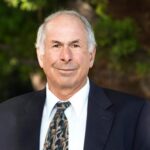
Robert Margolis, MD
Co-Chairman and CEO, DaVita HealthCare Partners
Co-Chairman of the Board, DaVita HealthCare Partners & CEO HealthCare Partners, LLC
Robert Margolis, MD, has been the managing partner and CEO of HealthCare Partners since the formation of the company in 1992. He also serves as Co-Chairman of the DaVita HealthCare PartnersSM Board of Directors. Dr. Margolis was a founding partner and the managing partner of HealthCare Partners’ predecessor, California Primary Physicians Medical Group. Under Dr. Margolis’ leadership, HealthCare Partners has become a highly respected and innovative physician-owned and operated medical group, independent physician association, and management services organization.
Dr. Margolis has been on the leading edge of the managed care industry for more than 30 years. He is a much sought-after spokesperson because of his vast experience in integrated delivery systems and physician practice management.
Dr. Margolis serves on the Board of several prestigious healthcare organizations. He is one of seven board members appointed by the Los Angeles County Board of Supervisors and UC Regents to the Board of Directors of the new Martin Luther King, Jr., Hospital. Dr. Margolis serves as a member of the HealthCare Policy Advisory Council for Harvard Medical School and the Advisory Board of the Schaeffer Center for Health Policy and Economics at the University of Southern California. He is a Board member and immediate past Chairman of the Board of the National Committee for Quality Assurance (NCQA), a Board member and past Chairman of the Board of Directors of the California Association of Physician Groups (CAPG), a Board member and immediate past Chair of the Board of Directors of California Hospital Medical Center, Los Angeles and a founding Board member of the Council of Accountable Physician Practices (CAPP). He is a member of the Executive Management School Advisory Committee of the School of Public Health at the University of California, Los Angeles. He is a past member of the Catholic HealthCare West Southern California Board of Directors and its Strategic Planning Committee. Dr. Margolis is past chairman of the American Medical Group Association and a two-time past chairman of the Unified Medical Group Association.
Dr. Margolis is board certified in Internal Medicine and Medical Oncology. While practicing medicine, he was an active member of the American College of Physicians and the American Society of Clinical Oncology. He is a graduate of Rutgers University (high honors – Henry Rutgers Scholar), and the Duke University Medical School (AOA) and served a fellowship at the National Cancer Institute.

Mark McClellan, MD, PhD
Director, Duke-Robert J. Margolis, MD, Center for Health Policy, Duke University
Mark McClellan, MD, PhD, is director of the Duke-Robert J. Margolis, MD, Center for Health Policy and Senior Fellow and Director of the Health Care Innovation and Value Initiative at the Brookings Institute. A doctor and economist by training, he also has a highly distinguished record in public service and in academic research. Dr. McClellan is a former administrator of the Centers for Medicare & Medicaid Services (CMS) and former commissioner of the U.S. Food and Drug Administration (FDA), where he developed and implemented major reforms in health policy. These include the Medicare prescription drug benefit, FDA’s Critical Path Initiative, and public-private initiatives to develop better information on the quality and cost of care. Dr. McClellan chairs the Reagan-Udall Foundation, is co-chair of the Quality Alliance Steering Committee, sits on the National Quality Forum’s Board of Directors, is a member of the Institute of Medicine, and is a research associate at the National Bureau of Economic Research. He previously served as a member of the President’s Council of Economic Advisers and senior director for health care policy at the White House and was an associate professor of economics and medicine at Stanford University.
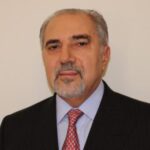
Stelios Papadopoulos, PhD
Co-founder & Chairman of the Board, Exelixis
Dr. Stelios Papadopoulos is a co-founder and Chairman of the Board of Exelixis, Inc., Chairman of the Board of Regulus Therapeutics, Inc., and a member of the Board of Directors of Biogen Idec, Inc., BG Medicine, Inc., and Joule Unlimited, Inc. He is also a co-founder, member of the Board, and at times Chairman, of both, Anadys Pharmaceuticals, Inc. (acquired by Hoffman – La Roche in 2011) and Cellzome, Inc. (acquired by GlaxoSmithKline in 2012). In the not-for-profit sector, Dr. Papadopoulos is a co-founder and Chairman of Fondation Santé and a member of the Board of Visitors of Duke Medicine.
Dr. Stelios Papadopoulos retired as Vice Chairman of Cowen & Co., LLC in 2006 after six years with the firm where as an investment banker he focused on the biotech and pharma sectors. Prior to joining Cowen, he spent 13 years as an investment banker at PaineWebber, Incorporated where he was most recently Chairman of PaineWebber Development Corp., a PaineWebber subsidiary focusing on biotechnology. He joined PaineWebber in 1987 from Drexel Burnham Lambert where he was a Vice President in the Equity Research Department covering the biotechnology industry. Prior to Drexel, he was the biotechnology analyst of Donaldson, Lufkin & Jenrette.
Before coming to Wall Street, Dr. Papadopoulos was on the faculty of the Department of Cell Biology at New York University School of Medicine. Dr. Papadopoulos holds an M.S. in physics, a Ph.D. in biophysics and an M.B.A. in finance, all from New York University.

Uwe Reinhardt, PhD
James Madison Professor of Political Economy, Princeton University
Uwe E. Reinhardt is the James Madison Professor of Political Economy and Professor of Economics, Princeton University, USA, where he teaches health economics, comparative health systems, general micro-economics and financial management. Reinhardt is also the co-director of the Griswald Center for Economic Policy Studies at Princeton University. The bulk of his research has been focused on health economics and policy, both in the U.S. and abroad.
Recognized as one of the leading U.S. authorities on health care economics and health policy, Reinhardt serves, or has served, on a number of government commissions and advisory boards, among them the Physician Payment Review Commission (now part of Medicare Payment Advisory Commission, or Medpac), a commission established by the U.S. Congress to advise it on issues related to physician payment; the National Council on Health Care Technology of the U.S. Department of Health, Education and Welfare (now Department of Health and Human Services (DHHS)); the Special Advisory Board of the VA; the National Advisory Board of the Agency for Health Care Quality and Research, DHHS. Since 2010 he has served on the Medicare Technical Advisory Panel of the Centers of Medicare and Medicaid Services (CMS), U.S. Department of Health and Human Services which advices the Chief Actuary of Medicare on making long-range forecast of health spending in Medicare.
He is a member of the Institute of Medicine and served on its Governing Council in the 1980s. He is past President of the Association of Health Services Researchers (now AcademyHealth), and of the Foundation for Health Services Research. He is also past president of the International Health Economics Association on whose Executive Committee he still serves. He also is a Commissioner of the Kaiser Family Foundation Commission on Medicaid and the Uninsured. He had been a trustee of Duke University and also of the Duke University Health System, and has served or still serves as director of several health care-related corporations.
He is a trustee of the National Bureau of Economic Research (NBER), and also serves on the board of the National Institute of Health Care Management and is chairman of the coordinating committee of the Commonwealth Fund’s International Program in Health Policy. He is a senior associate of the Judge Institute for Management of Cambridge University, UK. He served on the World Bank External Advisory Panel for Health, Population and Nutrition. In October 2006 Reinhardt was appointed by Governor Jon Corzine of New Jersey to chair the health reform commission for the state.
Reinhardt is or was a member of numerous editorial boards, among them the Journal of Health Economics, the Milbank Memorial Quarterly, Health Affairs, the New England Journal of Medicine, and the Journal of the American Medical Association.

Sue Siegel
Chief Executive Officer, GE Market Innovations
Sue Siegel is CEO of Market Innovations, which includes GE Ventures, healthymagination, and IdeaWorks. Healthymagination is GE’s $6B commitment to enable better health for more people and applies GE’s scale to transform healthcare worldwide by incubating innovative businesses and solutions to increase healthcare’s quality, access, and affordability. GE Ventures is GE’s venture investing arm. It combines capital, technical and commercial expertise, infrastructure, and the GE global network of businesses to partner to scale great entrepreneurial ideas, while driving growth for our start-up partners and GE. IdeaWorks, formerly known as GE Licensing, is focused on transforming raw potential from GE IP and trademarks into solid commercial progress to build a better world for all.
Previously, as a financial VC, Ms. Siegel led investments in personalized medicine, digital health, and life sciences at Silicon Valley-based Mohr Davidow Ventures. Before her VC years, Ms. Siegel dedicated over 20 years driving the growth of breakthrough technologies at Bio-Rad, DuPont, Amersham, and Affymetrix (NASDAQ: AFFX). As President and Board Member of Affymetrix, Ms. Siegel built shareholder value, leading its transformation from a pre-revenue start up into a global, multi-billion dollar market cap genomics leader.
Ms. Siegel has served on over a dozen private and public corporate boards. She currently serves on the Boards of: the National Venture Capital Association, NIH’s National Center for Advancing Translational Sciences-Cures Acceleration Network, Stanford Hospital Board’s IT Committee, serves on the Executive Committee of Santa Clara University’s Center for Science, Technology, and Society’s Board, Harvard Medical School’s Genetics Council, and as a member of Duke’s Institute for Health Innovation. She is a President’s Circle member of: the National Academies of Science, of YPO-WPO, of Women Corporate Directors, and a Henry Crown Fellow of the Aspen Institute. In the bestselling business book: Multipliers: How The Best Leaders Make Everyone Smarter, Ms. Siegel was a featured “Multiplier” and was recognized as one of “The 100 Most Influential Women in Silicon Valley”.

Sir Andrew Witty
Chief Executive Officer, GlaxoSmithKline
Andrew became Chief Executive Officer of GlaxoSmithKline plc on 21 May 2008. He is a member of the Board and Corporate Executive Team.
Andrew joined Glaxo in 1985 and held a variety of Sales and Marketing roles in the UK and abroad including South Africa, The USA and Singapore where he was Senior Vice President, Asia Pacific. In 2003 Andrew was appointed President of GSK Europe, and joined GSK’s Corporate Executive Team.
Andrew has served in numerous advisory roles to Governments around the world including South Africa, Singapore, Guangzhou China and the UK, where he is currently a member of the Prime Minister’s Business Advisory Group and is the Lead Non-Executive Director for the Department for Business Innovation and Skills. He was awarded a Knighthood for services to the economy and to the UK pharmaceutical industry in the 2012 New Year Honours List. While in Singapore Andrew was a Board Member of the Singapore Economic Development Board and the Singapore Land Authority. In 2003 he was awarded the Public Service Medal by the Government of Singapore and in August 2012 was also awarded the Public Service Star.
In January 2013 Andrew took up the post of Chancellor of the University of Nottingham. Andrew is also President of the European Federation of Pharmaceutical Industries and Associations (EFPIA) a position he took up on 1 January 2010.
Andrew has a Joint Honours BA in Economics from the University of Nottingham.